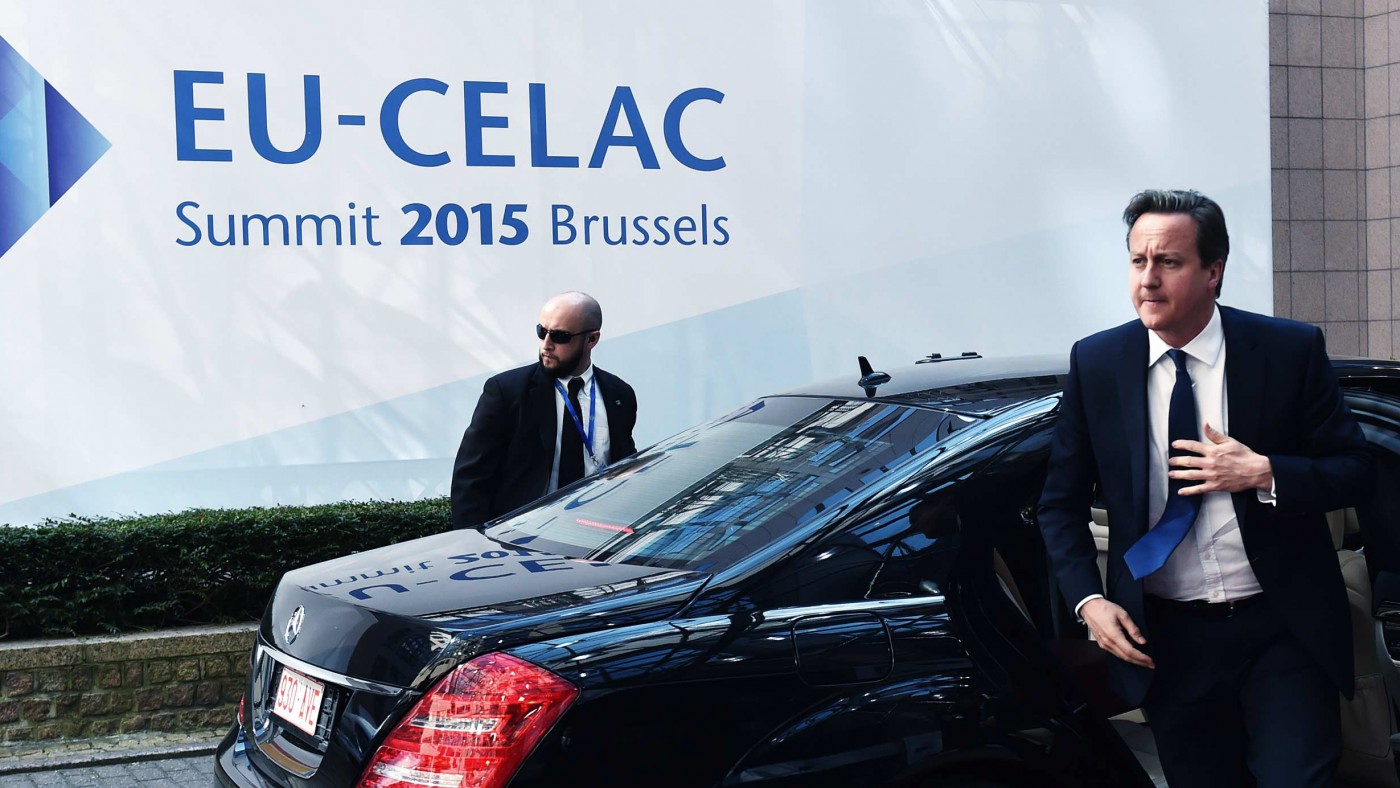Most Britons tell opinion pollsters that they want free trade with the EU rather than political integration. When In/Out is put to voters as a binary choice, they are fairly evenly split. Two years ago, the Outers had a ten-point lead; now they have a ten- or fifteen-point deficit. But add a middle option – commerce and co-operation, not institutional amalgamation – and it gets approval ratings of around 70 per cent.
As things stand, the only way to get that middle option is to vote to leave. Market access without merger is what, say, Switzerland or the Channel Islands have. But might it also be secured through an amicable renegotiation?
This is where the details become important. Downing Street is plainly determined to win the referendum at any cost. Its strategists have realised that some kind of associate status is popular. They therefore talk, rather cynically, of “rebadging” Britain’s deal along those lines. Yesterday’s papers reflected briefings from “senior Tories” to the effect that a change in the nomenclature might be enough to carry the poll. As one put it: “This associate status thing… is a buzzword that helps keep the troops in line.”
How shall we be able to tell whether the deal is for real, or whether it amounts to nothing more than a rebranding of our existing membership terms? Last year, I set out nine achievable objectives that the PM could bring back that would amount to a looser deal.
Essentially, Britain would opt out of the non-market aspect of membership: agriculture, fisheries, employment, social policy, foreign affairs, immigration, EU citizenship, tax harmonisation, criminal justice. It would recover the right to negotiate independent trade deals with non-EU states when Brussels was being unduly protectionist. It would restore the formal primacy of Parliament, so that EU regulations were no longer treated as superior to parliamentary statutes by our own courts.
Some Euro-zealots have claimed that my list is unreasonable; actually, it’s very moderate. A couple of dozen European states, from Iceland to Turkey, enjoy more or less such terms now.
In any case, why should we want to stay in the CAP, which causes unnecessary poverty in Africa while driving up food prices and forcing us to subsidise foreign farmers? Or the CFP, which has caused an ecological catastrophe in the North Sea? Why shouldn’t we be free to sign free trade agreements with India or Australia – countries to which we are linked by language, law, history and (frankly) obligation? In what bizarre world is it “extreme” for elected representatives, rather than overseas bureaucrats, to have ultimate sovereignty?
When the deal is announced, whatever name it is given, here are some tests of whether it amounts to anything:
Have we amended Section 2 of the 1972 European Communities Act so that EU law no longer has automatic supremacy over our own?
Have we recovered our right to speak and vote in the World Trade Organisation?
Have we withdrawn from the Common Agricultural Policy and Common Fisheries Policy?
Have we pulled out of the European External Action Service and restored the independence of our foreign policy?
Are we beyond the reach of the EU’s prosecuting magistracy (Eurojust) and police force (Europol)?
Can we set our own employment laws and social policy?
Can we set our own tax rates, including corporation tax and VAT?
Do we decide who settles in this country?
If you want this sort of deal, you should be campaigning now for a “No” vote. The only thing that will push our officials into negotiating such terms is fear of losing the referendum. If they think they can get away with paltry changes, or with “rebadging” the existing arrangements, that’s what they’ll do. Only when the opinion polls turn will they get serious about a genuinely new relationship.
And, if they don’t, never mind. We can, as I say, get such a deal à la Suisse: that is, from the outside. My guess is that, once we did, several other EU countries, including both members and non-members, would rush to follow. We might establish a pan-continental market, with 40 or 45 members, within which the 20 or 25 EU states would sit comfortably. Wouldn’t that leave everyone happier?


